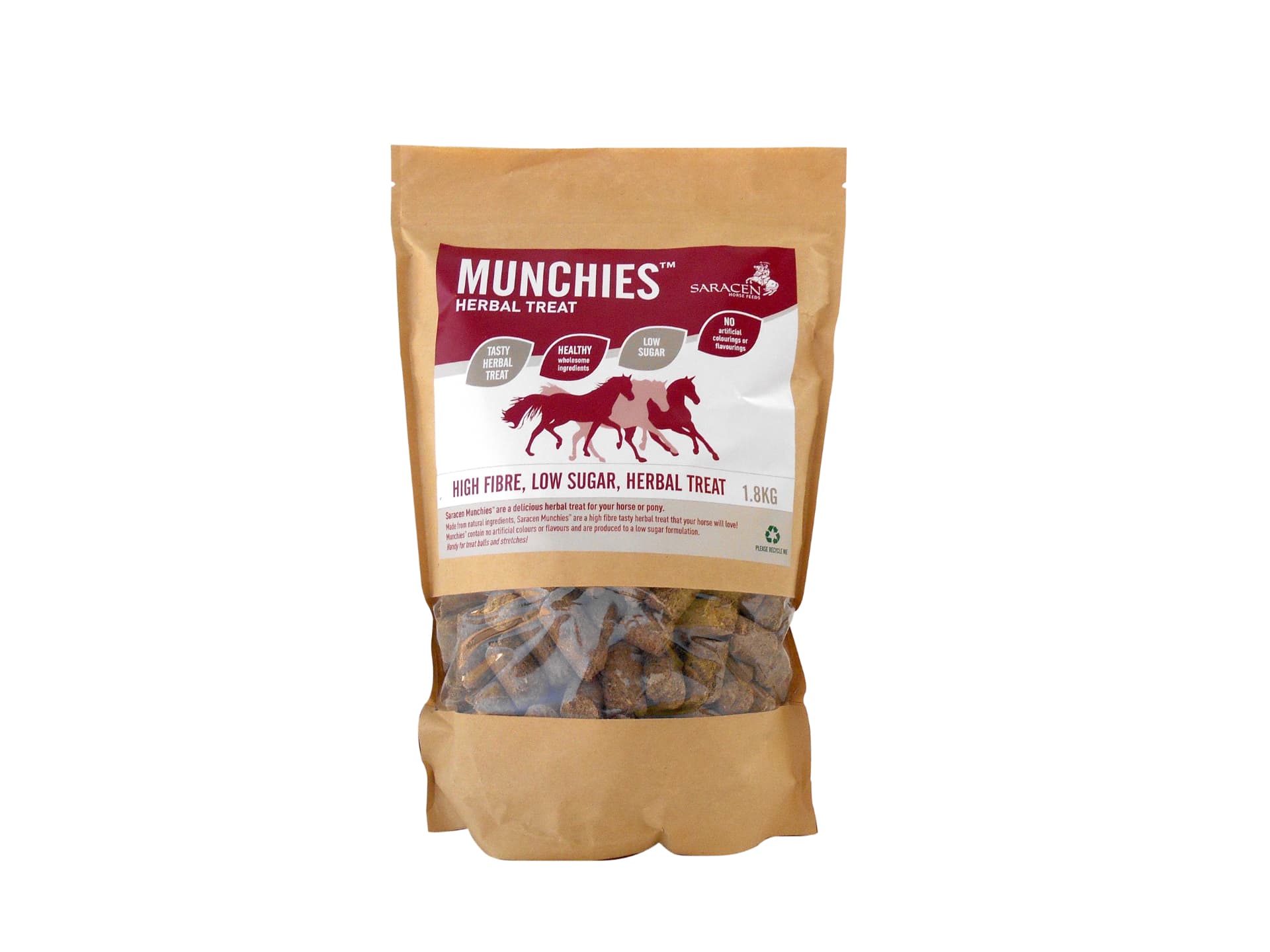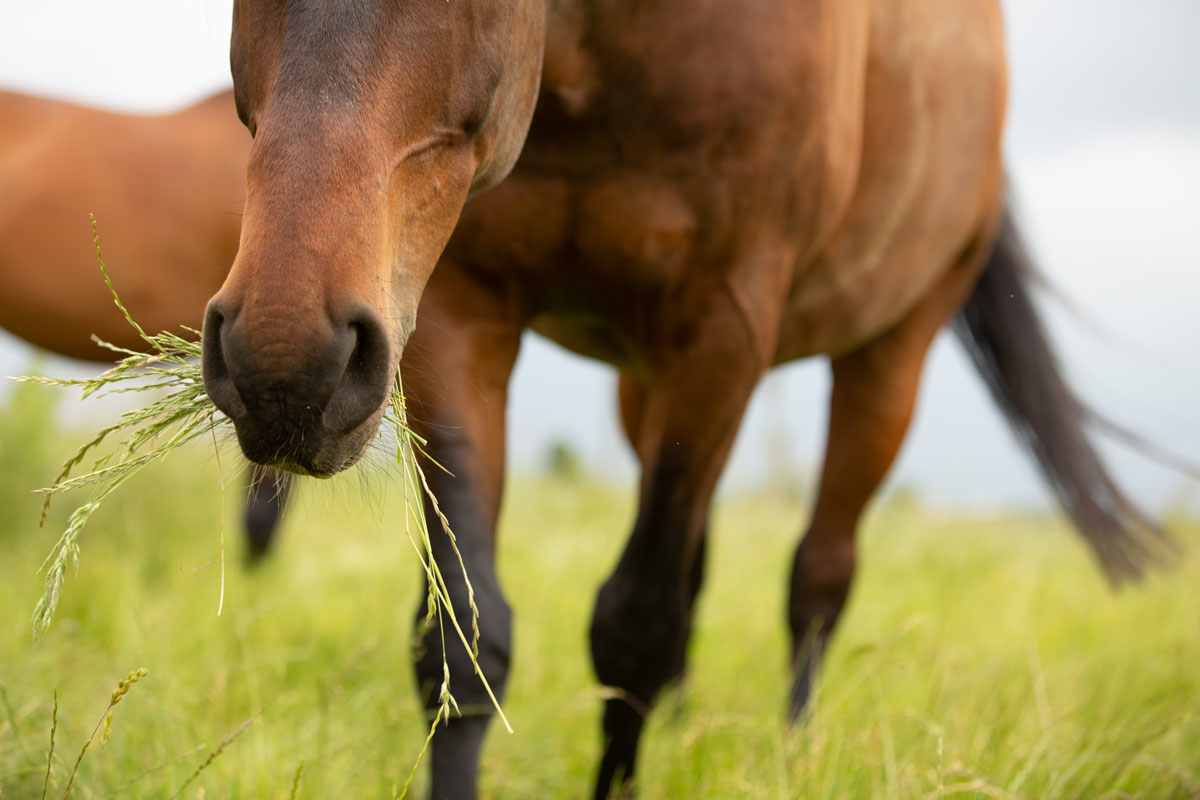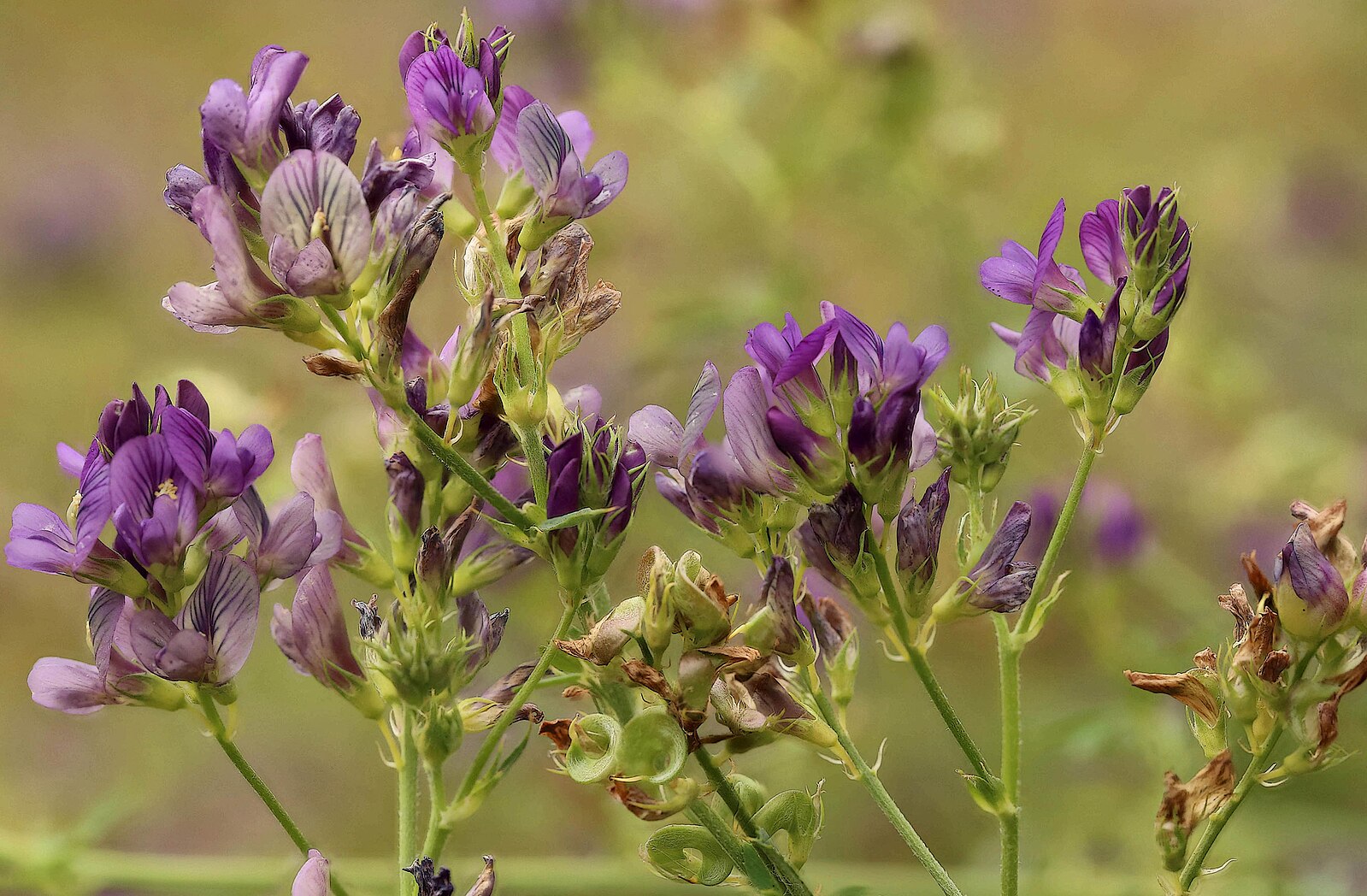Horses are extraordinary creatures that require special care and attention. Feeding them a balanced diet is essential for their overall health and well-being.
A snack can be a great way to supplement the horse’s diet, provide additional vitamins and minerals and strengthen the bond and relationship, always with measure, trust and respect.
In this article we will explore the ideal nutritional options for a do-it-yourself snack, the benefits of a healthy snack, tips for using it effectively for training, and snacks to avoid.
Get ready to find out everything you need to know about horse snacks to ensure your animal gets the best nutrition possible, including Harrison Horse Care’s snack offerings.
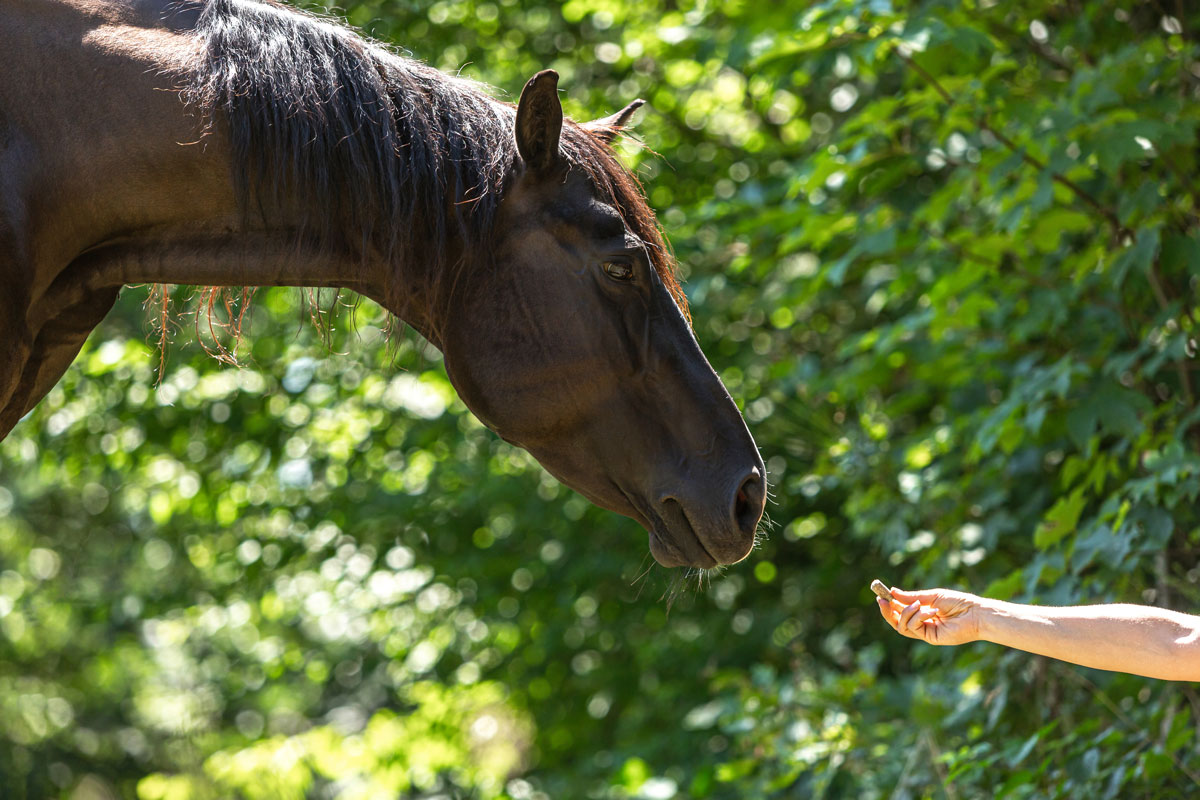
DIY snacks: what can my horse eat?
The digestive system of horses, herbivorous animals, has a delicate sensitivity that is necessary to consider when choosing a diet. Indeed, the equine system is designed for constant digestion, reflecting their natural behavior of grazing small amounts of hay and grass throughout the day. It is therefore essential to ensure that they have a balanced diet that includes fiber, through hay and grass, and vitamins, minerals and other components to ensure the vital energy they need.
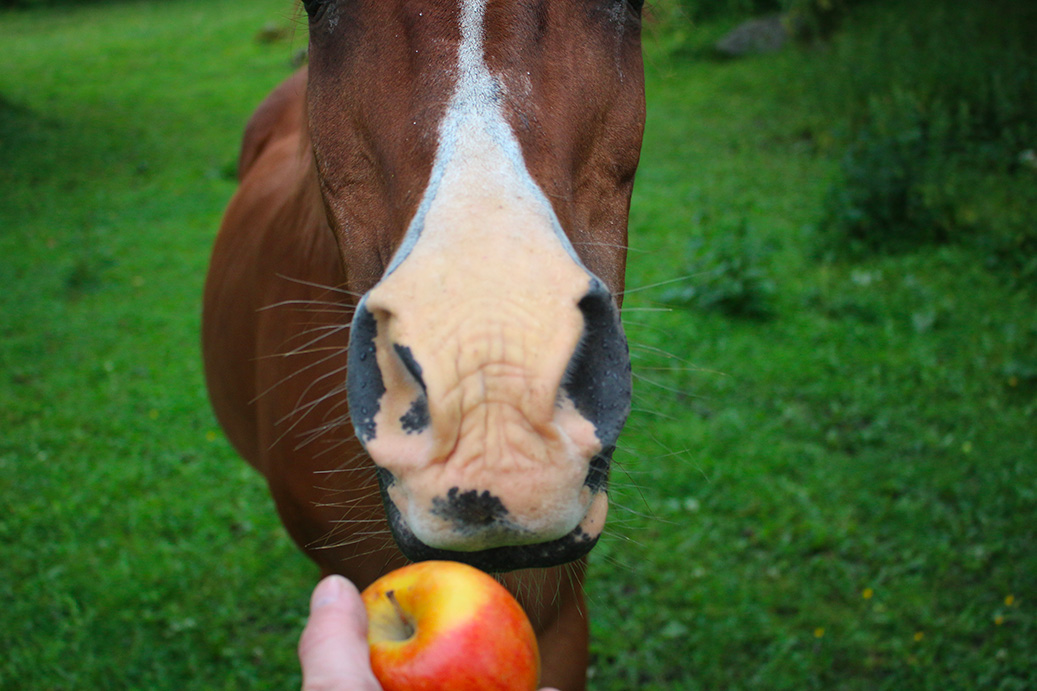
Healthy Snacks: What to Offer Them and The Hidden Benefits
As much as horses draw most of their needed nutrients from hay, forages, feed and mash, considered the main sources of sustenance to maintain an adequate dietary balance, snacks serve as occasional small diversions that supplement their diet. In addition to cookies made with fiber and hay cubes, you can offer your horses other healthy snacks that we can find in our pantry.
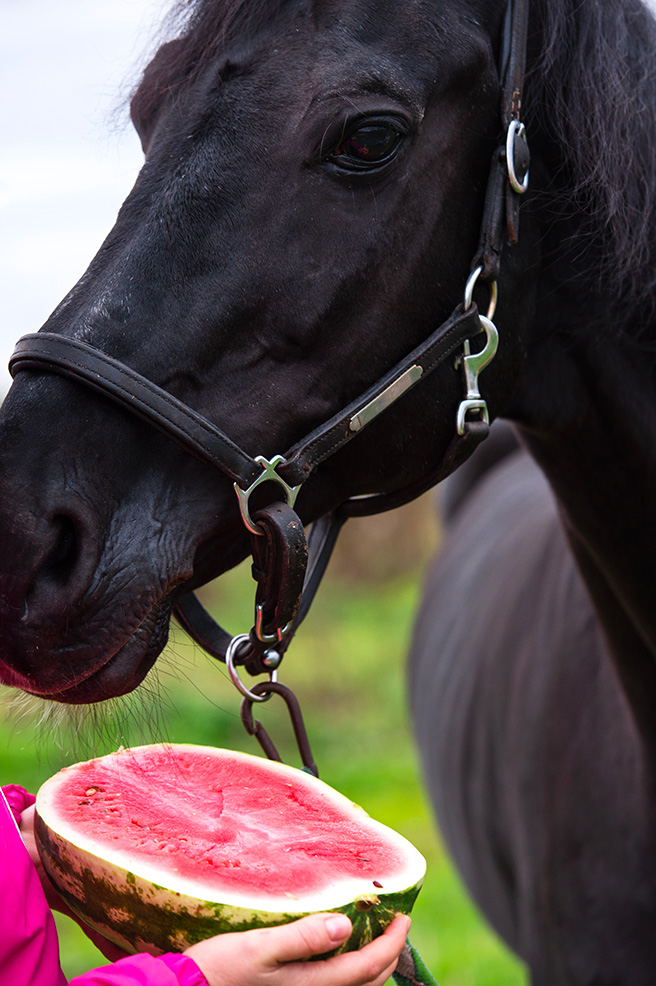
Fruits, vegetables and grain-free snacks
Fruit offers a natural solution that is rich in taste and vitamins.
Among the fruits allowed, with the correct doses, apples and carrots are undoubtedly favorites, boasting a profile rich in beneficial nutrients. It is advisable to cut apples and carrots into smaller pieces to aid ingestion and prevent choking problems, especially when offered to foals.
Bananas, being an excellent source of potassium, which intervenes in the muscle contraction mechanism, are ideal not only as a snack and can also help the sport horse, always making sure not to overdo it.
Celery and watermelon stand out as good sources of fiber and vitamins with low sugar and several additional benefits. It is known that chewing celery may in fact help in the production of alkaline saliva, thus contributing to the prevention of gastric ulcers. Watermelon, on the other hand, is anexcellent source of water on muggy summer days and in dry situations, as well as the best solution for older horses that have difficulty chewing. Still important in these cases, cut the fruit we choose to feed into small pieces.
Snacks to lick or hand out
Salt stones or lickable supplements provide entertainment and
can enrich the diet with essential minerals. These kinds of snacks help keep the horse busy, especially if he spends many hours in the stable.
Options include offering sugar cubes or sugar cubes in moderation. Although they are not the healthiest option, they remain an enjoyable snack from time to time. It is important to moderate its use, especially for horses with sugar-related conditions such as insulin resistance, equine metabolic syndrome or laminitis.
Mints represent a particularly popular treat for racehorses. As in the case of high-level athletes, who require a significant caloric regimen to support intensive training, racehorses also require a high amount of energy, which, especially in the past, was also supplied in this way.
The good rule, especially when foods are not part of the horse’s feeding routine, is not to overdo it. The horse’s digestive tract contains a balance of essential bacteria and probiotics that should not be upset so as not to compromise intestinal function.
Dangerous Snacks for Horses: Harmful Foods to Avoid
While fruits and overly sugary snacks should be offered with caution there are foods that should be completely excluded from the equine diet, as they can lead to serious health and wellness consequences.
Meadow scraps
Although it seems like a good way to dispose of lawn waste, this can pose a serious health hazard to the horse. In fact, they can contain poisonous plants, cause choking and cause drastic changes in the pH of the back intestine. Grass clippings begin a fermentation process that never leads to good consequences.
Harmful Vegetables
Onions, leeks, garlic and shallots contain n-propyl disulfide, a toxic component for horses. Similarly, potatoes and tomatoes, members of the solanaceae family, are toxic because they contain atropine, which can impair the horse’s autonomic nervous system and cause increased heart rate, constipation and decreased saliva levels. Vegetables such as cabbage, broccoli, cauliflower and Brussels sprouts (from the brassicaceae family) should also be avoided as they can cause serious gas and colic problems.
Chocolate
Chocolate is known to be harmful not only to dogs and cats but also to horses and should be avoided. In fact, the main ingredient in chocolate, cocoa, contains theobromine, a chemical that can cause serious illness or, in high doses, death of the horse.
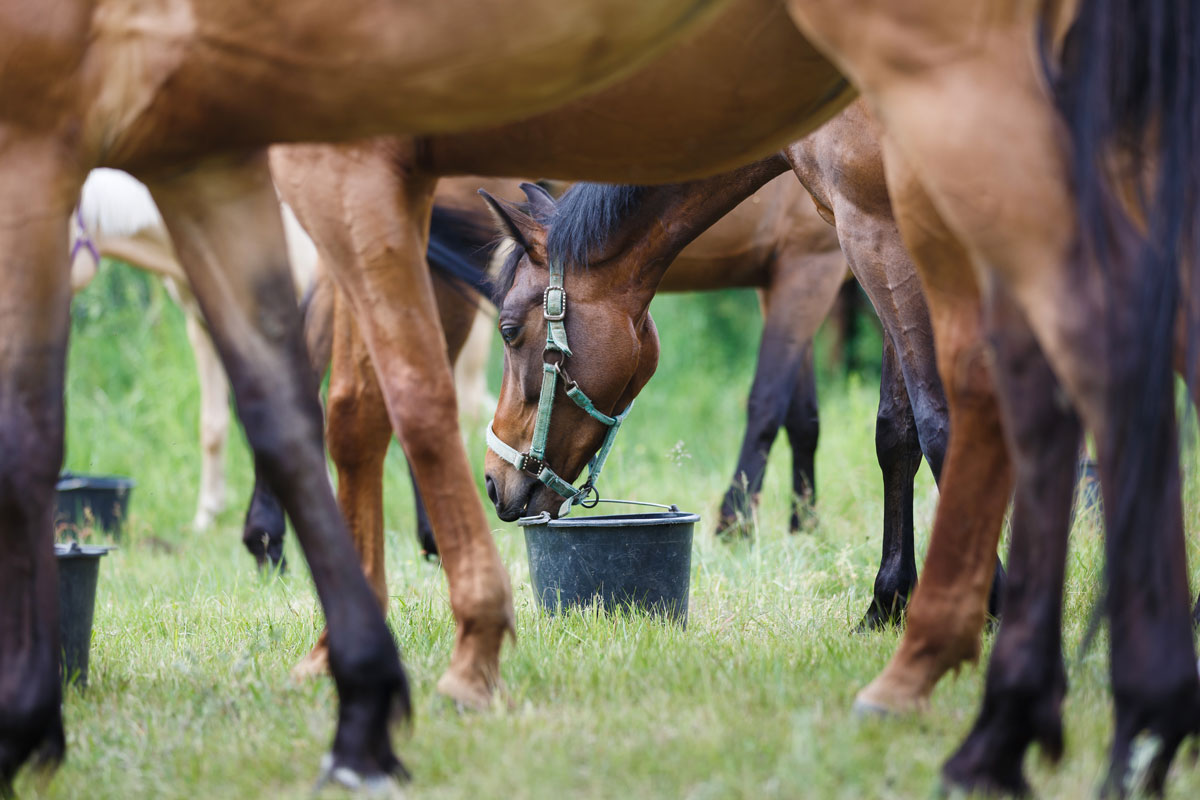
Effective training: snacks in horse training
Based on a relationship of mutual trust, the use of small food rewards can become a powerful positive reinforcer, capable of motivating the animal to perform certain actions or behaviors.
As in the case of any interaction, however, reward and reward modes play a crucial role, setting the stage for constructive learning. For example, offering snacks via bucket or on alternative surfaces to hands can prevent the establishment of undesirable behaviors such as biting.
Those interacting with the horse must create a proper and constant space for interaction regardless of snacks and rewards. The horse is an extremely habit-forming animal, and not receiving a snack, which has now become part of its routine, can lead it to undesirable behaviors of waiting and demanding.
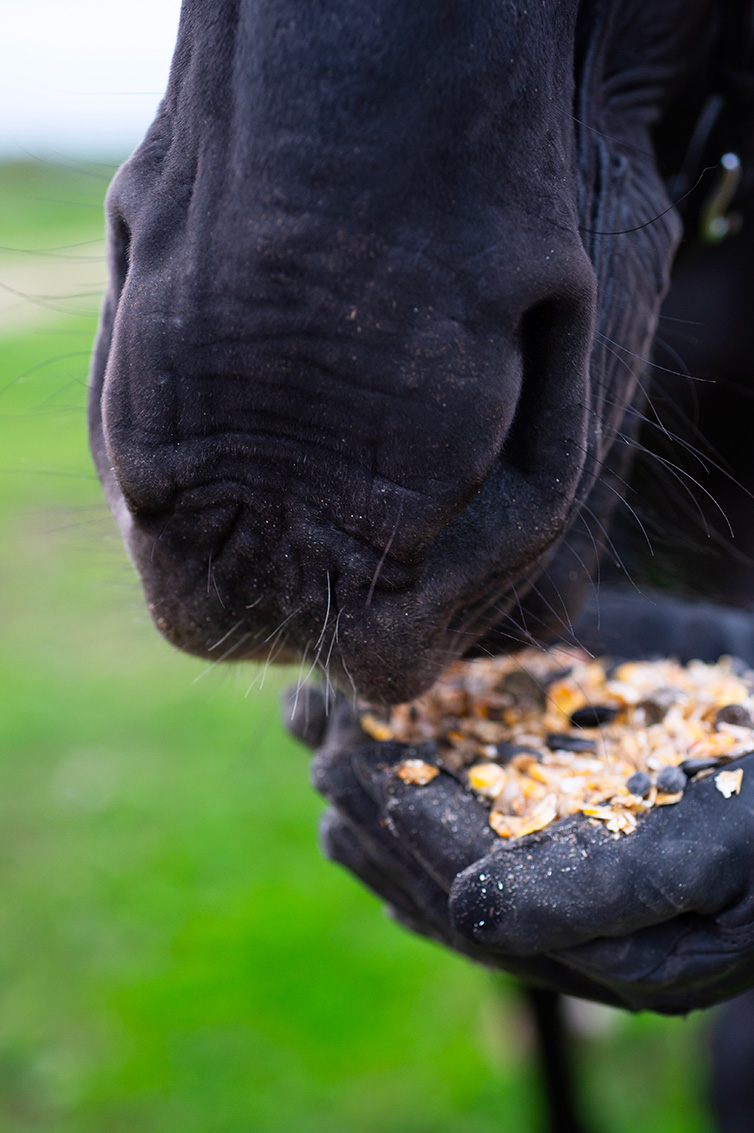
The Optimal Frequency to Reward
The frequency with which snacks are given plays a key role in the balance between motivation and health.
While it is true that fruits and vegetables are particularly appreciated by horses, it is essential to include such rewards in a balanced diet without ever overdoing it. Variety in snacks can keep the horse’s interest high while avoiding dietary monotony.
However, it is important to remember that any reward must be administered judiciously, without disrupting the horse’s basic diet or causing nutritional imbalances.
The golden rule lies in moderating the use of snacks, favoring their use as occasional reinforcement. This practice not only fosters a healthy and respectful relationship between human and horse but also contributes to the overall health and well-being of the animal, ensuring that snacking remains a special, appreciated and unexpected moment.
Only the best horse snacks from Harrison Horse Care
Harrison Horse Care offers high-quality equine snacks that are an excellent choice for his health.
Discover Saracen’s Munchies Herbal Treat, delicious healthy and pleasantly flavored herbal cookies made with the finest British ingredients and raw materials. These cookies, low in sugar and free of artificial flavors, come in environmentally friendly and fully recyclable packaging.
Ingredients include grass pellets and a selection of natural ingredients such as micronized flaxseed and meadow grass mix. They also contain beet pulp, a food known to be rich in fiber, easily digestible pectins and beneficial to digestion. Without the addition of molasses and with a low sugar content, this pulp is also particularly suitable for horses with metabolic disorders.
One or two pellets of Saracen Munchies make an ideal tasty reward for the horse.
